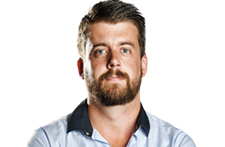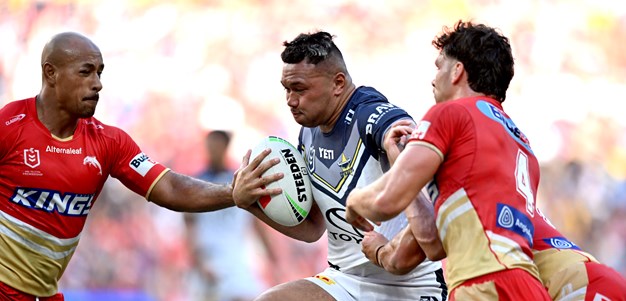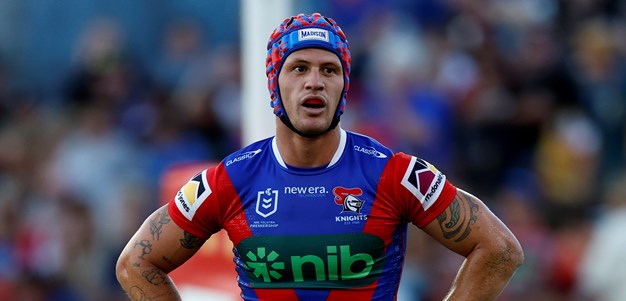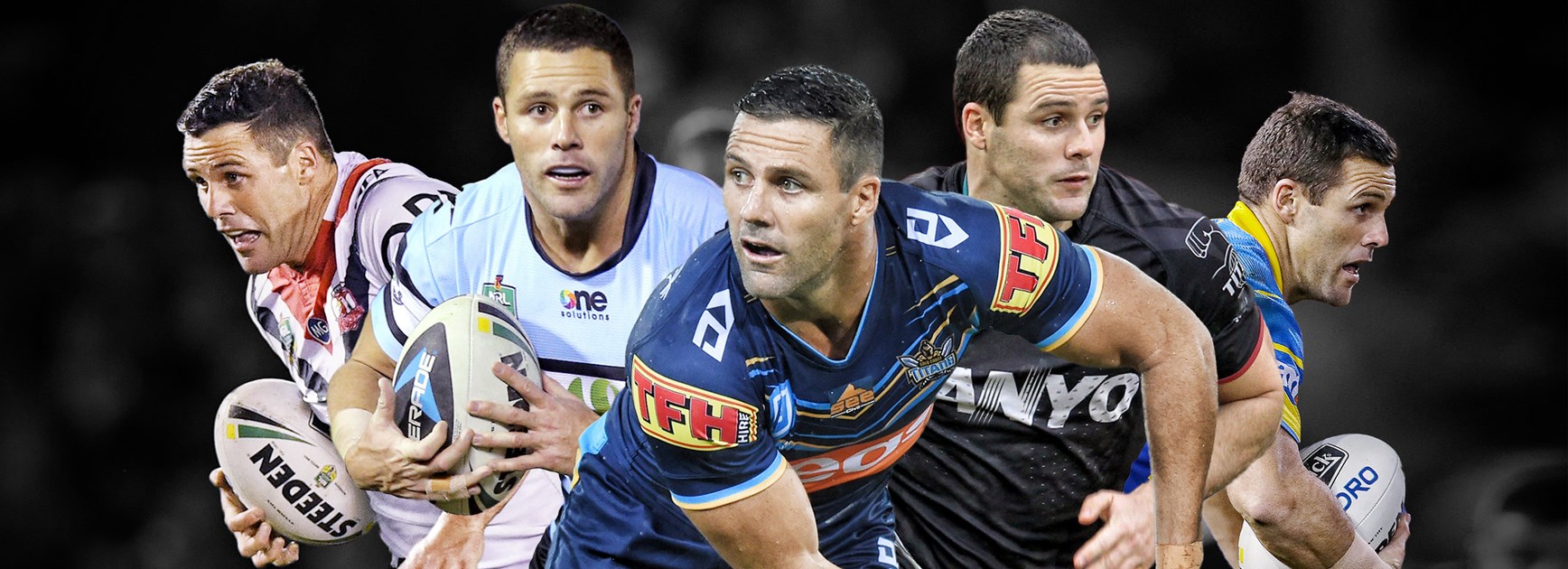
A handy performance in a televised reserve-grade game helped turn Michael Gordon from a surfing kid from just south of the Tweed who was happy to play footy part-time with his mates into a 261-game NRL legend.
"Flash" never contemplated a career as a professional player growing up but a decision to just give it a go has given him a lifetime of memories and a career many would envy.
Michael Gordon: Legend Q&A
How did a kid from the Tweed wind up debuting at Penrith?
Growing up in Cabarita Beach there was no Titans at the time. The best competition around was the Q-Cup. I never really wanted to play footy professionally when I was younger but as I got older I was working, playing footy on the weekend, surfing, I was pretty content.
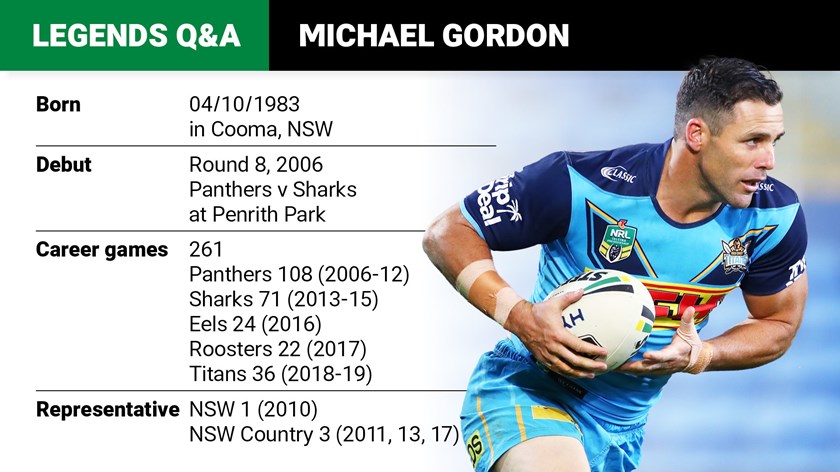
But then I thought, you know what, I'll have a crack at a Q-Cup side and see what happens and if I'm up for it. Had a pre-season with Burleigh, didn't make the cut there, went to Tweed which was better for me because it was closer and played A-grade that year in the local league. The next year I played Q-Cup and got picked up by Penrith.
They offered me a two-year deal and I thought, what's two years of my life. I was 20 at the time and thought I'd go down and have a crack, I'll make it or I won't, if not I'll come home and be happy.
Was it a case of a recruitment manager coming up to check out the league and spotting you?
It was more because the ABC used to show it on Saturdays and I was playing in that game on the day we were playing Brisbane Easts, which was John Lang's old team. He happened to be watching it and it started like that, I happened to have a really good game and it happened like that, from the ABC TV.
Coming down and debuting alongside some big names like Rhys Wesser, Preston Campbell and Luke Priddis and some handy backs like Luke Rooney and Luke Lewis, that must have been daunting at the time?
It was surreal to start with, you watch these blokes get knocked out in a prelim the year before and being superstars to all of a sudden running around in pre-season with them.
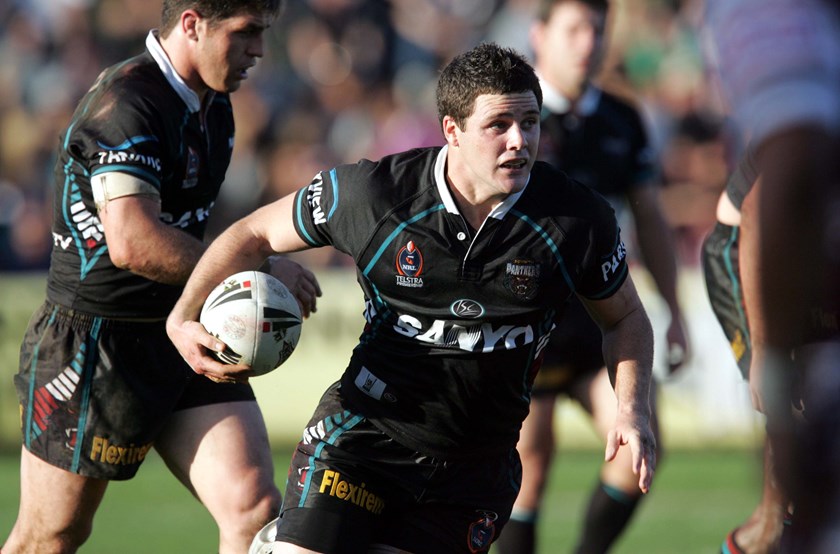
I'd never done an NRL pre-season before, I don't think I said a word to them the first six months, I was just in awe of everyone.
You slowly build up confidence and playing reserve grade in 2005 was definitely what I needed because I was not ready for first grade.
So your two-year deal ended up being one in reserve grade and one in first grade?
I had my 21st birthday in October 2004 then moved to Penrith three days later and started pre-season. Round eight I debuted in 2005, me and Paul Aiton debuted in the same game.
And was it a big step up straight away?
My first game was probably the ideal way to play your first game because I was in the shower getting ready to go down and play reserve grade, someone came and told me I was playing first grade and I thought they were joking so I went down as if I was playing reserve grade and they said 'no you're actually playing first grade'.
So I didn't have all week to get nervous, all that time to build up and get nervous energy. I remember we went out and played and got absolutely flogged [40-12 by Cronulla] but after playing that game I was like 'you know what, I didn't feel out of place out there'. I was never the biggest bloke so that was probably the best mental hurdle to overcome and I never looked back from there.
When did you really start to feel comfortable or like you belonged?
It's hard to say, I sort of got a bit better each year. In 2010 I had my breakout season at Penrith, I played every game, I played Origin, I was Dally M top pointscorer, I felt like I was on top of the world.
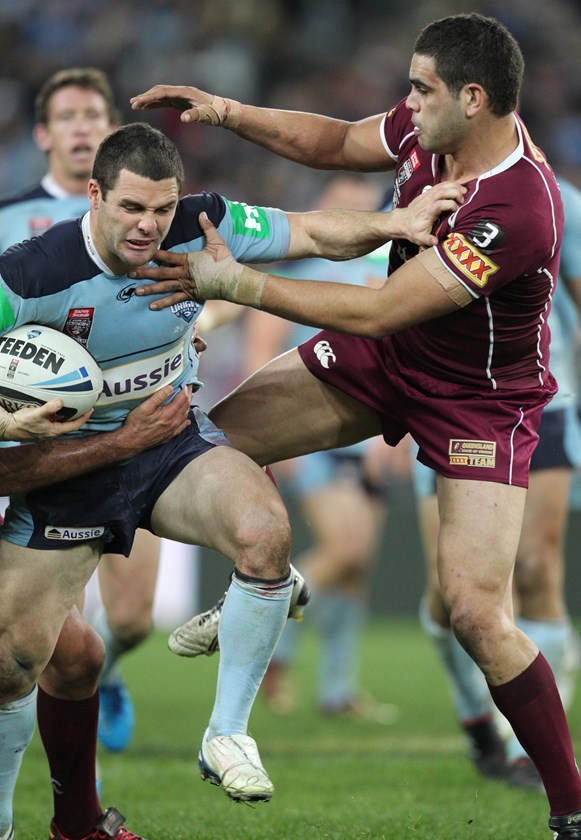
I started 2011 in the same sort of form if not better, then I did my knee the week of Origin selection, missed the rest of that season.
Came back, had a great pre-season, couple of great trials then round one broke my leg so basically 2011 and 2012 I was on the sidelines for almost the entire time so that was really hard to deal with.
Slowly I had to come back from that. I felt like I came back a different player. After breaking my leg and the ankle operation to go with it I sort of lost a bit of power but still felt like I was capable of delivering.
I was a different body type after that, when you're younger you're pretty cruisy about rehab and prehab then as you get older you realise you need it, for me having two major surgeries made me realise how I have to look after my body. I changed a lot of the way I played and the way I prepared after that.
Let's go back to Origin for a second because I was at that game and even though NSW lost I felt like you played really strongly.
Even though it was a dead rubber, for me, it was Origin – it was the biggest thing in the world. I was amazed and happy to be out there. The way I performed, I felt confident, especially the way I started the next year I was going to be hopefully in the mix again and like I said that's when I did my knee.
Being out again the whole next year I was basically in the wilderness for a couple of years and it sort of put me out of the picture.
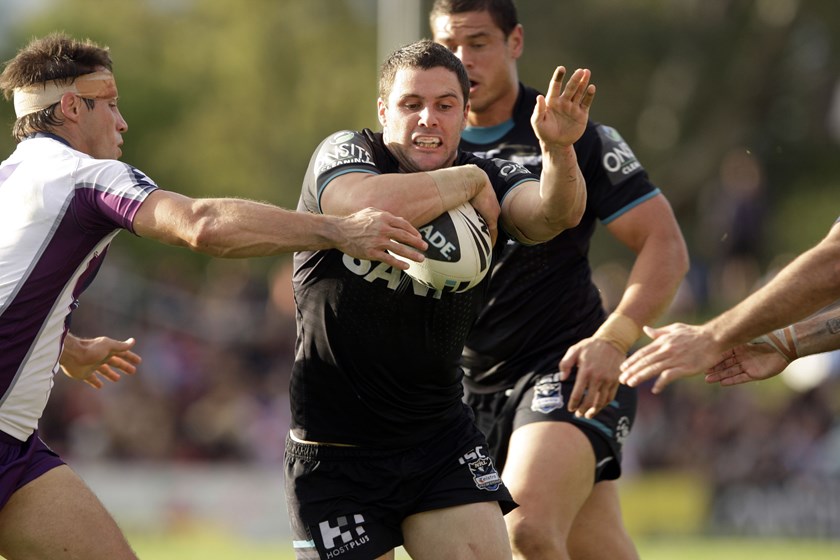
It must be hard not to wonder what could have been.
Mate, my whole career was littered with those in terms of contract-wise and stuff like that but you can't look back with regret, that's footy.
That was also around the time you were making the transition to fullback and making a big impact there.
I played a couple of games at fullback in 2009 but 2010 was the first time, after Cootey [Lachlan Coote] got injured I played the rest of the season at fullback. I'd never played fullback in my life but I actually liked playing there, it was good.
I remember your stats going through the roof once you switched back there.
It was a lot different then. The footy the last few years has changed completely to when I first started. I look at those old games, it looks so slow and different.
Fullbacks were getting big metres; some still get them now but you were getting so many kick returns.
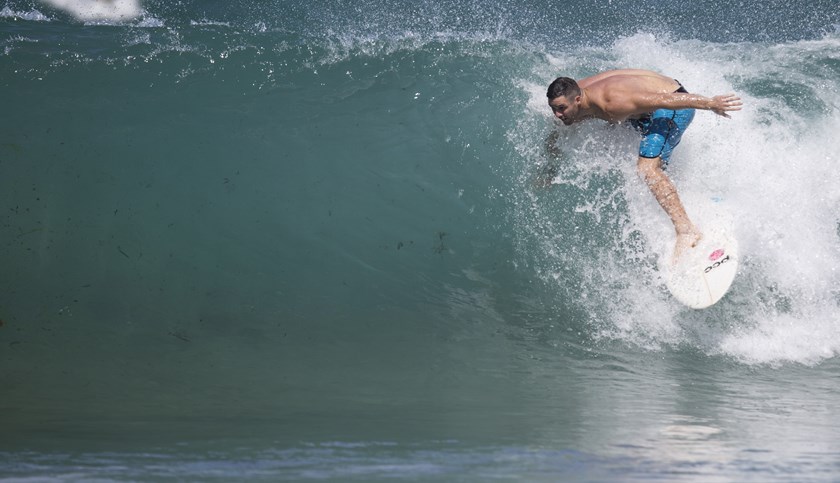
Most teams now if they get up to halfway put up a bomb and fullbacks are getting pinned a lot more. It was good just to be a part of the whole journey and the way the game's been changing.
Those two injury-affected seasons ended up being your last two at Penrith, was it tough to decide to leave for the Sharks?
I was pretty comfortable with it, I'd been at Penrith for eight years. I'd always wanted to be a one-club player but the whole contract thing … it's hard to say because I did get injured my last couple of years.
The couple of years before that I felt like I got undersold and mismanaged so I changed managers after all that but in my mind I was adamant that I felt like I needed a change and had to get out of there.
Even when Gus [Phil Gould] came in and offered me what would have been the best deal of my career, I didn't sign before round one then I broke my leg in round one and he took the deal off the table and I thought, that's footy.
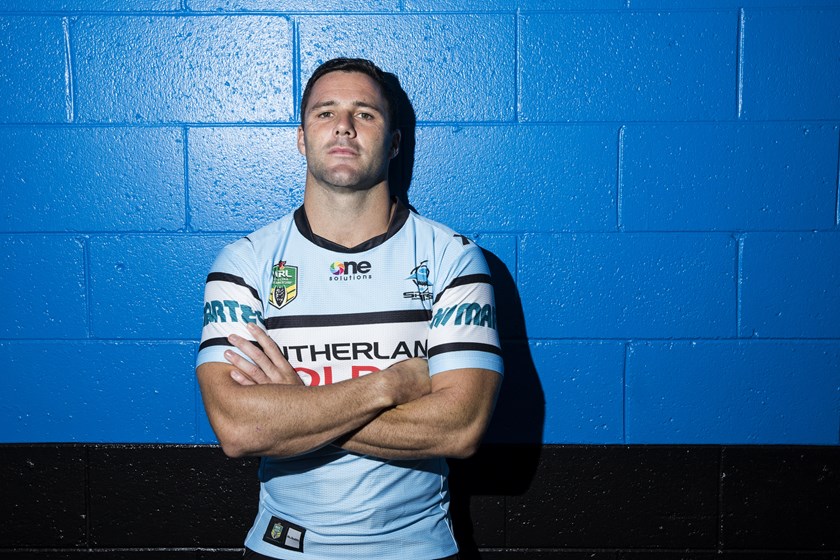
You only played two finals games in eight years at Penrith then made the finals two out of three years at the Sharks, was that a factor in the move at all?
No, I thought we were capable of it at Penrith, I just had to get out of there. I thought Cronulla was the best fit for me, it was good to be back by the beach. My first year the ASADA stuff happened so it was turbulent from day one until pretty much my last day there, it was nothing but dramas and stuff going on the whole time.
But I look back on my time at Cronulla with nothing but great memories, we played semis two out of the three years I was there and it was a really good time.
It's not really a secret though that it didn't finish on the best terms with the club refusing you a release to the Eels.
That was probably the lowest point of my rugby league career. I contemplated retiring, I was trying to go overseas, I really didn't want to be around footy at all.
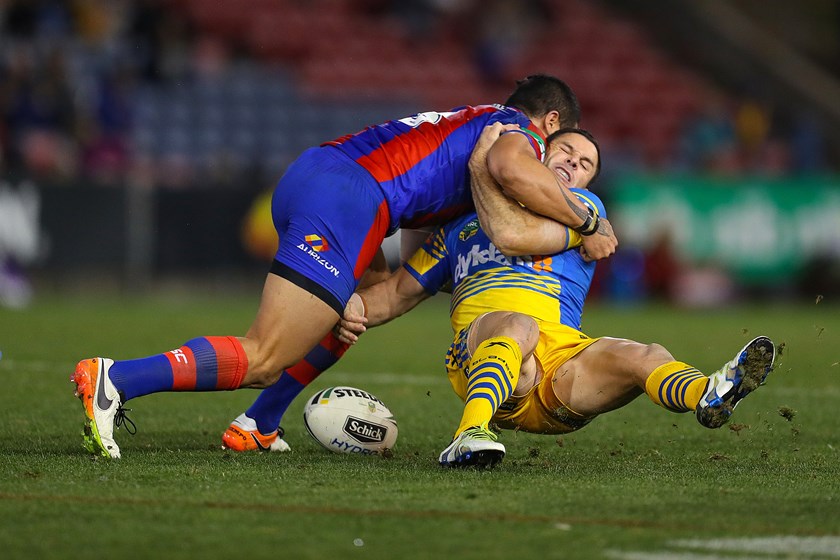
Usually if there's stuff going on in your life you can always go to training or go play and that takes it away but my problem was at training. There was a six or eight week period there where I just hated footy.
I was still playing but hated being there, hated what was going on behind the scenes, stuff that I had no control over. That was the worst part. If it was something I'd done I'd cop it on the chin and move on but it was stuff happening behind my back that I had no control of, that was the worst part.
Going to Parra was like a breath of fresh air, I got out of there and fell in love with footy again and it was great.
I couldn't count the number of times I've had Bevan French praise your influence on his early career even after you'd left – you were clearly a leader and a mentor by that stage of your career.
That's a nice way of saying I was an old fart by then! Bevan was a great kid. That was another turbulent year, we got all our points taken off us but we played such great footy, if we had all our points I think we would have finished fifth that year.
It was just such a fun year and the boys at Parra were great, Brad Arthur was fantastic, I really loved it. Blokes like Bevan and everyone were great to be around, they were a really really good bunch of blokes.
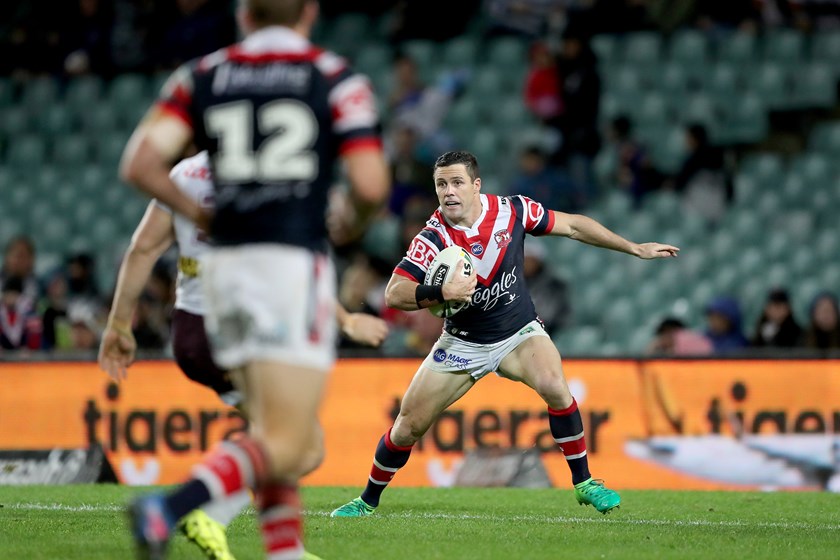
Just one year there then one year at the Roosters, that must have been a big switch-up compared to probably any of your previous clubs?
They were coming off a second-last finish that year. But I wasn't going there for a rebuild, I was going there because I knew they were such a good club and wasn't expecting them to be down for long.
Great club, great people. Trent Robinson is a fantastic coach. I had a great year there, we were a bit unlucky not to make the GF that year. I'd signed on to play an extra year there and even though they signed James Tedesco I loved that club so much I was happy to be there.
At that time in my career it was such a good place for me, they were so good to me and my family and went above and beyond in trying to make us feel comfortable.
I was committed to playing one more year there, finishing my career and being happy but then I got the call to potentially come home to the Goldy, somewhere I'd always tried to come back to for so many years but deals always fell through in one way or another.
They offered me two years and once I told the missus she just said 'we are going'. I didn't want to leave but I'd moved my family around so much the past few years, we'd built a house up in Casuarina, just to be able to move home and finish back where it all started was a fitting way to send it off.
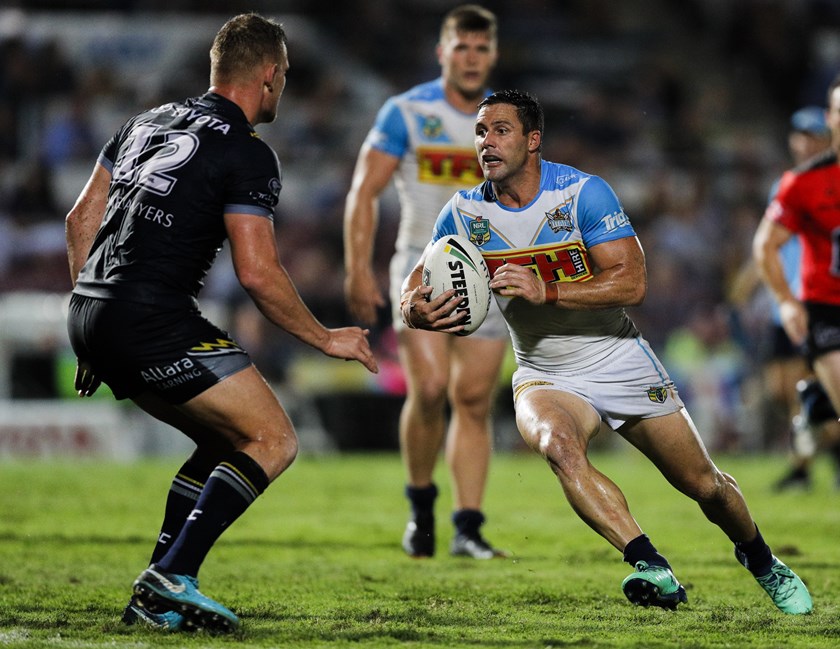
So you pretty much had half an eye on the Titans from 2007 thinking it might happen one day?
I nearly came in the first year in 2007 but I'd just debuted at Penrith and wanted to be loyal to Penrith. I had another opportunity later which fell through and it felt like it was never meant to be even though I tried. To finish off back here was perfect.
I work full-time here now helping out with first grade, looking after some of the younger development boys as well. I don't have ambitions to be a head coach but it was good to sit on the other side, do a bit of coaching but still be involved with the boys and whenever they were short on players they'd throw me in drills and try and smash me so it's good fun.
What stands out to you looking back on 261 NRL games, one Origin match, a Kangaroos train-on squad spot? There must be plenty of great memories.
Being involved in it for so long is something I'm definitely grateful for. The last couple of weeks I've been sorting out my garage, as you do in isolation, and finding the old trophy cabinet, old photos and stuff.
In the next few years I'll be able to look back and say 'I'm pretty bloody proud of what I got to do and all the great players I got to play with and against and made some lifelong friends'.
